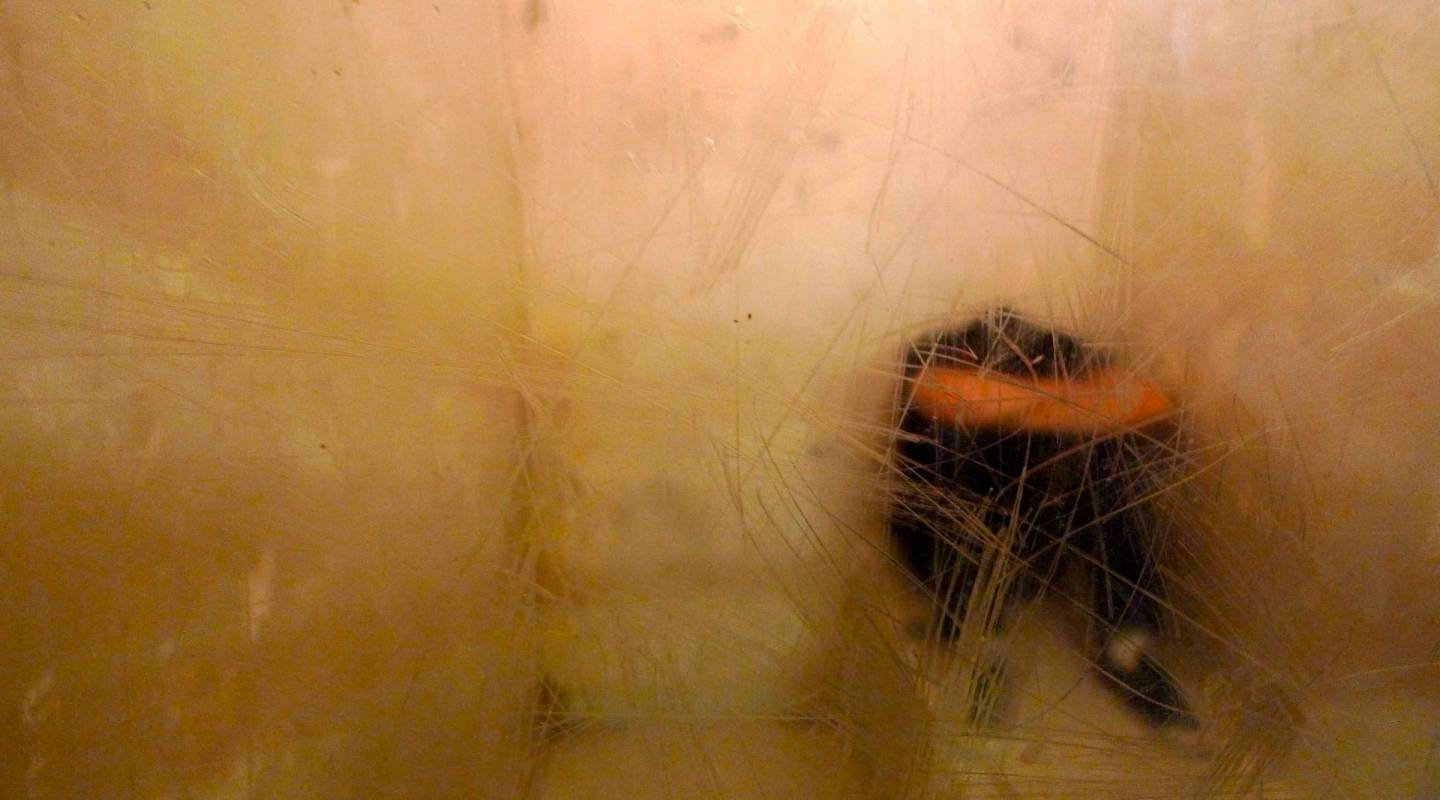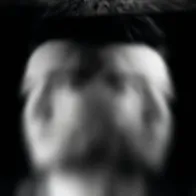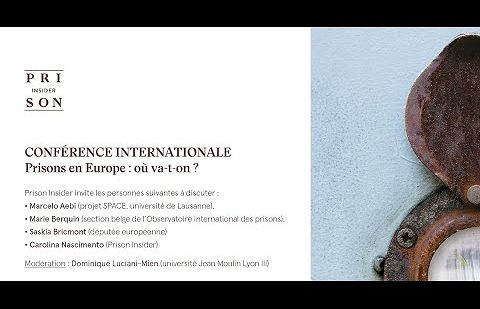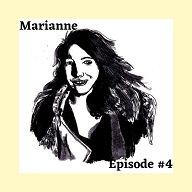
Walling up madness
More than 40 % of prisoners in Italy suffer from at least one mental disorder, about 30% in Spain, 35% in England, and 60% in the Netherlands. Does prison make you go mad? This is no doubt true for some. Prison Insider provides an overview of practices in eight countries.
More than 40 % of prisoners in Italy suffer from at least one mental disorder, about 30% in Spain, 35% in England, and 60% in the Netherlands. Does prison make you go mad? This is no doubt true for some. For others, it simply reveals a pre-existing condition. Prison often causes the break-up of social and family relationships. Isolation, overcrowding and surrounding noise create a violent environment in prison. Substance abuse is widespread. All these conditions contribute to triggering or worsening existing psychiatric problems in prisoners.
Prison Insider and the French National Union for Family and Friends of People Suffering Mental Illness and/or Psychological Disability (Unafam) offer an analysis of the care provided in eight European countries to individuals with mental health problems who have committed offenses.
"I am going crazy, ma’am, with the other two in my cell... They have strange illnesses: one whines non-stop while the other one keeps yelling!”. A Belgian prisoner talks.

In Germany, general psychiatric hospitals refuse to accept prisoner patients.
Glossary
Anti-androgenic treatment (chemical castration): drugs used to reduce or suppress sexual urges by administering hormonal substances. This method is used in the United States and some European countries to reduce recidivism rates among sexual offenders.
Antipsychotic: medication prescribed for the symptomatic treatment of adult psychoses, particularly schizophrenia.
Anxiety disorders: a group of mental health problems characterised by excessive anxiety, fear, worry and avoidance behaviour.
Bipolar disorder: a mental disorder that causes unusual shifts in mood, energy, activity levels, concentration, and the ability to carry out day-to-day tasks. These moods range from periods of extremely “up,” elated, irritable, or energized behaviour (known as manic episodes) to very “down,” sad, indifferent, or hopeless periods (known as depressive episodes). Less severe manic periods are known as hypomanic episodes. Bipolar disorder is one of the most severe psychiatric conditions, leading most frequently to suicide attempts.
Care pathway: medical follow-up of a patient, coordinated between a multidisciplinary health care team for care provision and prevention purposes.
Comorbidity: simultaneous presence of two or more diseases or medical conditions.
Criminal responsibility: a defendant’s mental capacity to understand the charges brought against them as well as any consequences of their actions. Also may refer to the liability in criminal law resulting from one’s actions.
Detoxification: Treatment aimed at gradually reducing and eliminating a patient’s addiction to alcohol or drugs.
Drug-free unit: a specific unit that accommodates prisoners who wish to remain (or try to become) drug-free during their detention. They are placed there at their request and follow a therapeutic programme.
Equivalence of care: a principle by which prison health services are obliged to provide prisoners with care of a quality equivalent to that provided for the general population.
Exemption of criminal responsibility: (total or partial) in most countries, individuals with mental health problems that committed an offense are exempt from criminal responsibility. Each country determines the conditions for such exemptions. Individuals are generally deemed not criminally responsible if, as a result of mental disease or impairment, they are not aware of the wrongfulness of their conduct.
Forensic mental healthcare: a field of specialisation that provides assessment and treatment to individuals with mental health problems in the criminal justice system.
Involuntary treatment: a treatment imposed on a person unable to grant consent. It is ordered when individuals cannot take care of themselves or present a dangerous behaviour toward themselves or others.
Measure (usually a security measure): Refers to a treatment order. It is called, in Belgium, a social defence measure. It differs from a sentence in that it does not always require an offense to be committed. These are generally imposed on individuals deemed not criminally responsible.
Medical isolation: the practice of isolating incarcerated people for medical reasons, including mental health emergencies. The isolation measure must be carried out in a specific and appropriate facility or unit.
Mental disorder or illness: a condition that essentially affects the psychic functions of the individual, in other words, an alteration of mental health. It corresponds to characteristic clinical symptoms of a psychological, behavioural, or relational nature.
Mental health crisis: an episode in which someone with an actual or perceived mental illness is experiencing intense feelings of personal distress.
Neuroleptic treatments (antipsychotic drugs): drugs that exert an effect upon the nervous system. Neuroleptics are usually prescribed to reduce agitation and prevent delusional mental activity with confusion, delirium, or aggression. Some are also prescribed for the prevention of nausea and vomiting. Neuroleptics mostly work by blocking dopamine receptors.
Occupational therapy: assessment and treatment that focuses on recovering or maintaining people’s ability to perform daily activities and increase their independence.
Outpatient treatment: medical care that does not require overnight hospitalisation
Personality disorder: a way of thinking, feeling and behaving that deviates from the expectations of the culture, causes distress or problems functioning, and lasts over time.
Pharmacotherapy: the treatment of health conditions with medication.
Psychiatry: the branch of medicine focused on the diagnosis, treatment and prevention of mental, emotional and behavioural disorders.
Psychoeducation: psychotherapeutic intervention that aims to develop an individual’s and their family’s knowledge and understanding of a mental health condition in order to improve their managing and coping abilities.
Psychopharmacology: the study of the use of medications in treating mental disorders.
Psychotherapy (talk therapy): broad term used for treating mental health problems through the use of verbal and psychological techniques. Therapy sessions can be conducted in an individual or group setting. The therapist’s role is to advise and support the patient.
Psychotic disorders: severe mental disorders that cause abnormal thinking and perceptions. People with psychoses lose touch with reality. Two of the main symptoms are delusions and hallucinations.
Psychosis (psychotic episode): abnormal mental state with characteristics of serious impairment in the higher brain functions such as perception, cognition and/or cognitive processing. These impairments manifest themselves in delusions, hallucinations or disorganized speech functions.
Psychotropic drugs: medications prescribed for psychiatric purposes that affect the central nervous system and influence thought processes, emotions and behaviours. Its aim is to reduce the patient’s disorder in order to improve their living conditions. These drugs are classified into five groups: anxiolytics, hypnotics, antidepressants, mood stabilisers and neuroleptics. The medication is monitored by health professionals.
Restraint: restricting or impediment of the movement of a person’s body for medical reasons. Mechanical restraint implies the use of devices (handcuffs, straps, restraining beds, etc.), and chemical restrain, the use of medication.
Schizophrenia: a severe long-term mental health condition characterised by significant impairments in the way reality is perceived and changes in behaviour related to persistent delusions and hallucinations, experiences of influence, control or passivity, disorganised thinking, etc.
Smooth cells: bare cells with no furniture or access to water, generally reserved for people risking suicide or self-injury.
Social and judicial supervision: measure aimed at preventing recidivism and favouring social reintegration. Supervision measures may come with treatment orders and assistance measures. Supervision is generally a supplementary sentence but can be imposed as a principal sentence in the case of an offense.
Sociotherapy: any treatment aimed at promoting reintegration or improving an individual’s relationship with a group.
Somatic care: medical care that addresses an individual’s physical health care needs.
Specific facility: in this study, a facility (or part of a facility) specifically designed to accommodate people with mental health problems that have committed an offence.
Substitution treatment: substitution medication help avoid the physical effects of “withdrawal” to stop or reduce heroin use. This kind of treatment also provides medical, psychological, and social support to reduce the risk of relapse.
Treatment order (duty of care): obligation to follow treatment for substance abuse or mental health problems. This measure is usually ordered by a Court.
Acknowledgements
Prison Insider thanks the following people who shared their knowledge and experience with us:
In Germany, Barbara Bauduin (Sciences Po Toulouse), Axel Dessecker (Institut für Kriminalwissenschaften der Universität Göttingen), Bernd Dimmek (researcher), Norbert Konrad (Institut für Forensische Psychiatrie), Camille Lancelevée (researcher), Wilhelm Tophinke (psychiatrist) and Birgit Völlm (Forensic psychiatric hospital of Rostock).
In England and Wales, Graham Durcan (Centre for Mental Health) and Birgit Völlm (Forensic psychiatric hospital of Rostock).
In Belgium, Hanne Beeuwsaert and Katelijne Seynnaeve (FOD Justitie), Virginie de Baeremaeker (psychologist and criminologist), Steven Degrauwe (Sint-Kamillus Psychiatric hospital), Gaëlle Meunier (Neuropsychiatric Centre in Saint-Martin), Kevin Pesout (POPZC Rekem Public Centre for Mental Health) and Fanny Vansiliette (lawyer).
In Spain, Vicenç Tort (Parc Sanitari Sant Joan de Déu).
In France, Cyrille Canetti (prison psychiatrist), Michel Doucin (Unafam) and Martine Frager Berlet (Unafam).
In Italy, Liliana Lorettu (University of Sassari), Michele Miravalle (University of Turin and Antigone), and Franco Scarpa (USL Toscana Centre).
In the Netherlands, Peter Braun and Erik Bulten (FPC Pompestichting), Frans Koenraadt (University of Utrecht, Curaçao and Aruba), Sanne Struijk (University of Rotterdam) and Michiel van der Wolf (University of Leiden).
In Switzerland, Christine Ammon (Hindelbank correctional facility), Melody Bozinova (Infoprisons), Christine Brown (Association SchiSme), Bidisha Chatterjee (Swiss conference of prison doctors, Conférence des médecins pénitentiaires suisses, CMPS), Andreas Diemand (Champ-Dollon prison), Grégoire Dorsaz and Fabian Jeker (Swiss training centre for prison staff, Centre suisse de formation pour le personnel pénitentiaire), Bruno Gravier (psychiatrist), Kathrin Gruber (lawyer), Henning Hachtel (Department of forensics at psychiatric clinic of Bâle), Simone Hänggi (Psychiatric clinic of Bâle-Campagne), Rigobert Hervais Kamdem (Forensic psychiatric centre of Fribourg Mental Health Network, Centre de psychiatrie forensique du Réseau fribourgeois de santé mentale), Clémence Rubio (Lausanne University Hospital, Centre hospitalier universitaire vaudois), Christoph Urwyler (Swiss Centre of Competence for the Enforcement of Criminal Sanctions, Centre suisse de compétences en matière d’exécution des sanctions pénales) and Beatrice Willen (Forum of Nursing Staff in Detention Facilities in Switzerland, Forum du personnel soignant des établissements de détention en Suisse).
Prison Insider also thanks Anaëlle Becker, Patrick Chariot, Sybille de Charry, Coline Constantin, Michel Doucin, Martine Frager Berlet, Agathe Léger and Maude Zannier.
The project
The present thematic paper was created by Prison Insider and conducted in collaboration with Unafam thanks to financial support from Amnesty International Foundation France. Its contents are the sole responsibility of Prison Insider.
Unafam
FRENCH NATIONAL UNION FOR FAMILY AND FRIENDS OF PEOPLE SUFFERING MENTAL ILLNESS AND/OR PSYCHOLOGICAL DISABILITY
Unafam accommodates, listens to, supports, trains, informs and assists the families and friends of people living with mental disorders since 1963. The association has 14,500 members, including 200 volunteers. It is committed to providing a listening ear and mutual aid activities (consultations, Internet and telephone platforms), raising awareness, disseminating information, and training facilitated by professionals. Unafam has published a guide (in French) entitled “How to help a mentally ill family member facing criminal justice?”.

Our methodology
In partnership with Unafam, Prison Insider carried out an in-depth survey on the eight countries mentioned in this study. Measures for the psychiatric care of mentally ill offenders have been identified as well as their consequences. The views of individuals with expertise in their respective fields (NGOs, researchers, prison staff and officials, care facilities and national institutions) were collected through videoconference interviews and questionnaires. This work is also based on articles and reports written by national and European experts, providing accurate and up-to-date observations. This document does not claim to be exhaustive. It is an overview and brief inventory of the conditions of imprisonment and confinement of people suffering from mental disorders.















